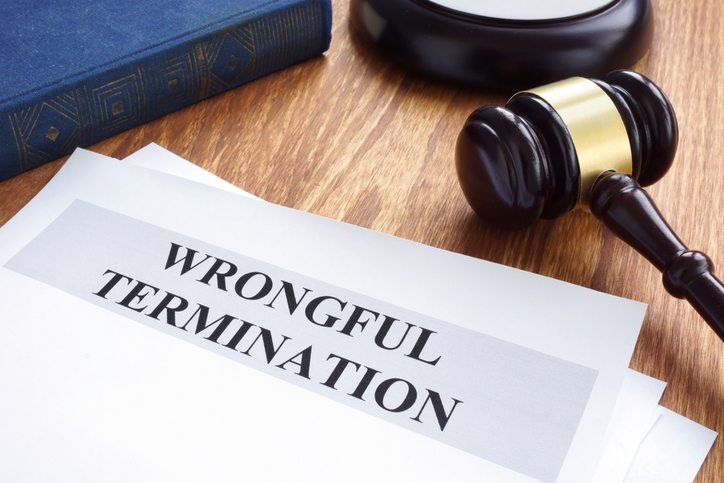UNFAIR TERMINATION: LEGAL PROTECTIONS AND REMEDIES
Unfair termination is a significant concern for employees in Kenya, where labour laws are designed to protect workers from wrongful dismissal. Under the Employment Act, 2007, employers are required to follow fair procedures and provide valid reasons before terminating an employee. Failure to do so can result in claims for unfair termination, offering employees recourse through legal processes. This article will explore what constitutes unfair termination, the legal framework in Kenya, and the remedies available to affected employees.
The Legal Framework
The Employment Act of 2007 is the primary legislation governing summary dismissal in Kenya. The Act outlines the fundamental rights of employees and establishes the minimum employment conditions. According to the Act, an employer has the right to terminate an employment contract summarily if the employee engages in gross misconduct. However, employers must ensure that the termination is fair and follows due process to avoid liability for unfair termination.
What is Unfair Termination?
Unfair termination occurs when an employee’s contract is ended by the employer in a manner that violates the provisions of the Employment Act. It can happen in two main forms:
- Procedural unfairness: Where the employer fails to follow the proper procedures for termination.
- Substantive unfairness: Where the termination is based on invalid or unjust reasons.
For a termination to be considered fair, both substantive and procedural fairness must be observed.
Grounds for Summary Dismissal
There are several lawful grounds upon which an employer can invoke summary dismissal:
-
- Absence without leave: Skipping work without a valid reason or leave is a serious offense that can lead to summary dismissal.
-
- Intoxication while on duty: Being intoxicated while on the job is not only unprofessional but also a red flag that can result in summary dismissal.
-
- Negligence or carelessness: Neglecting or performing duties carelessly can jeopardize productivity and invite summary dismissal.
-
- Gross Misconduct: Where the employee engages in improper behavior, such as theft, insubordination, or dishonesty.
- Criminal offenses: Engaging in criminal activities detrimental to the employer’s interests is a fast track to summary dismissal.
- Breach of contract: Any serious violation of the employee’s obligations.
Fairness and Due Process
While summary dismissal is a sharp tool in employment law, it is essential to ensure that the process is fair and follows due process. Employers must adhere to the procedural requirements outlined in the Employment Act and observe principles of natural justice and fairness throughout the disciplinary and termination process.
The Legal Process for Termination
The Employment Act provides strict guidelines on how termination should be handled to ensure fairness:
- Notice: Employers are generally required to provide written notice to the employee before termination. The length of the notice period is determined by the employment contract or, in its absence, is based on the nature of employment (e.g., daily, weekly, or monthly employment).
- Hearing: Before an employee is dismissed, especially for misconduct or poor performance, the employer must give the employee a chance to be heard. This is often referred to as a disciplinary hearing, where the employee is allowed to defend themselves against the accusations.
- Written Reasons: If the termination is based on performance, conduct, or incapacity, the employer must provide written reasons for the dismissal.
Failure to adhere to these procedures may render the termination unfair.
Consequences of Unfair Termination
If an employee is dismissed without just cause, they may present a complaint to the labour officer or institute a claim in the Employment and Labour Relations Court. The remedies available to the wronged employee include the following;
- Reinstatement: The Employment and Labour Relations Court can order the reinstatement of the employee to their previous position. Reinstatement means that the employee resumes their role as though the termination never occurred, without loss of benefits, seniority, or pay.
- Compensation: The court can award the employee compensation for unfair dismissal. This compensation can be up to 12 months’ gross salary, depending on the circumstances of the case. The court may consider factors like the length of service, the nature of the termination, and any hardship the employee suffered as a result of the dismissal.
- Terminal Dues: The employer may be required to pay any outstanding terminal benefits that were due to the employee at the time of dismissal. These may include:
- Notice pay (if proper notice was not given).
- Accrued leave days not taken.
- Severance pay (in cases of redundancy).
- Any other contractual entitlements.
Conclusion
Unfair termination remains a pressing issue in Kenya, but employees are protected by robust legal safeguards under the Employment Act. Employers are required to follow both procedural and substantive fairness when terminating employment contracts, failing which they risk legal action. Employees who believe they have been wrongfully dismissed have the right to seek redress through the Employment and Labour Relations Court, with remedies such as compensation or reinstatement available. As the legal landscape continues to evolve, both employers and employees must stay informed about their rights and obligations.
We hope this information has been helpful. This content is however not exhaustive since there is much more to explore beyond what is written. If you need assistance you can contact us through our Email on [email protected] or you can Call/WhatsApp us through 0735 094112.

